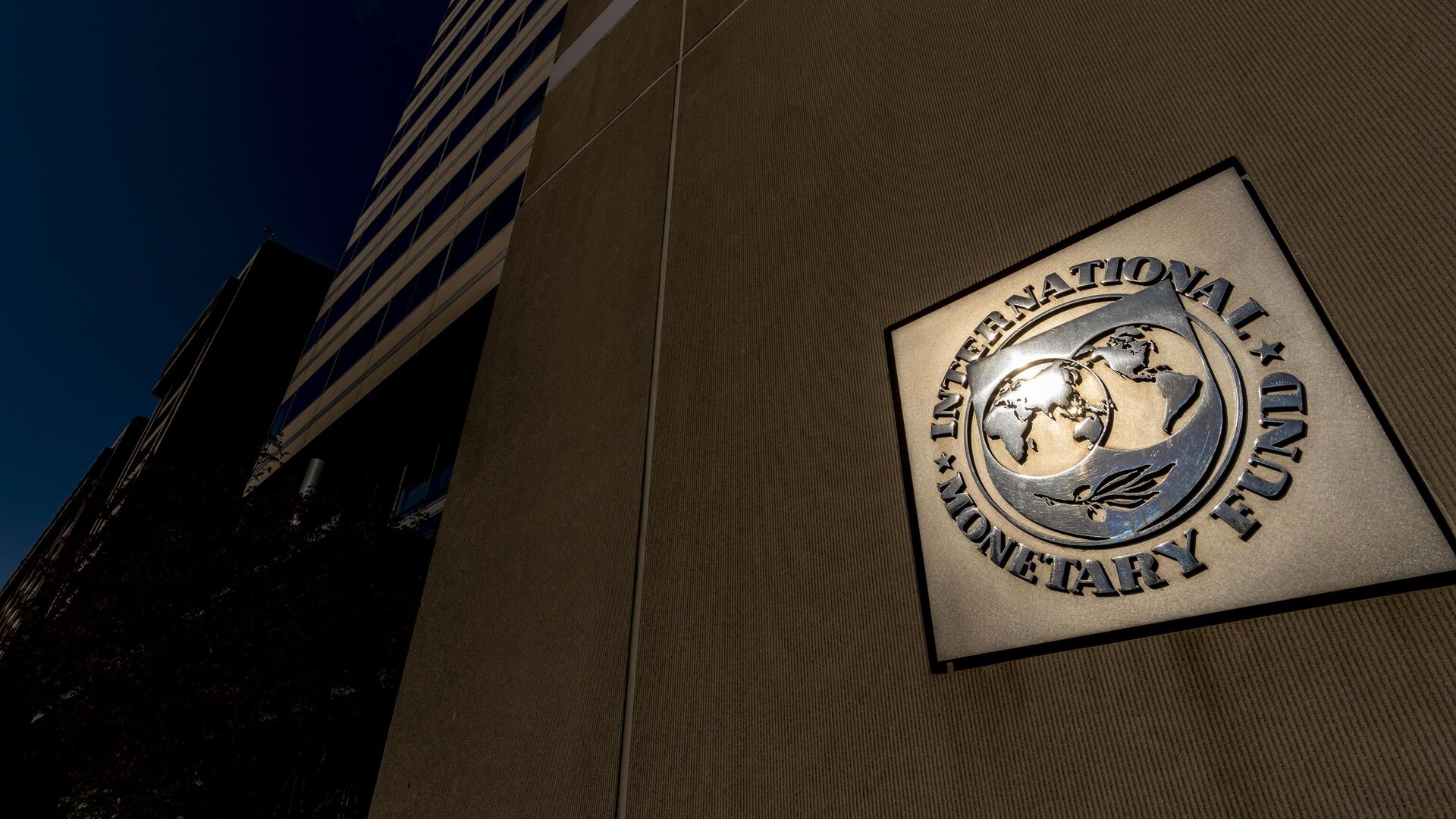https://en.sputniknews.africa/20240229/excessive-use-of-us-sanctions-may-lessen-world-trade-create-trade-blocs-ex-imf-official-says-1065311388.html
Excessive Use of US Sanctions May Lessen World Trade, Create Trade Blocs, Ex-IMF Official Says
Excessive Use of US Sanctions May Lessen World Trade, Create Trade Blocs, Ex-IMF Official Says
Sputnik Africa
WASHINGTON (Sputnik) - Last week, the United States rolled out approximately 500 new sanctions on Russian people and entities, including in the energy sector. 29.02.2024, Sputnik Africa
2024-02-29T08:04+0100
2024-02-29T08:04+0100
2024-02-29T08:04+0100
maria zakharova
united states (us)
russia
european union (eu)
ukraine
sanctions
us sanctions
anti-russian sanctions
international monetary fund (imf)
https://cdn1.img.sputniknews.africa/img/07e7/0c/1d/1064365815_0:320:3072:2048_1920x0_80_0_0_8b8a4e4ff6852e1627dd7a4684f626b6.jpg
The excessive use of US sanctions may lessen world trade and lead to the establishment of several powerful trading blocs, former member of the International Monetary Fund's (IMF) Executive Board Hossein Askari told Sputnik. Askari also said that excessive use of US sanctions will restructure the global economy, which will eventually lead to even higher levels of inflation worldwide. Overall, the United States has imposed some 3,500 anti-Russia sanctions on individuals and entities since the start of the special military operation in February 2022. Russian officials have pointed out that Russia is solving all the problems the collective West has created to contain and weaken the country's economy, but the West lacks the courage to recognize that the sanctions regime has failed. Russian officials have also said that the Western sanctions have dealt a serious blow to the global economy and have actually increased the prices of electricity, fuel and food products in Europe and in the United States.Seizing Russia's Frozen Assets May Unsettle Flow of Foreign Investments, Ex-IMF Official BelievesA seizure of Russia's' frozen assets abroad by the European Union and its G7 allies would unsettle the flow of foreign investments and damage the global economy, Hossein Askari told Sputnik.The European Union (EU) is estimated to hold some $300 billion in Russian central bank assets together with its G7 allies, including the United States, Japan and Canada. The Western allies have been holding talks on how to tap the frozen funds to help pay for the reconstruction of Ukraine, but Russia argues this is illegal and will ruin the West’s image as a safe haven for global money.Last year, the World Bank estimated that $411 billion would be needed for the reconstruction and recovery of Ukraine.European Council President Charles Michel previously noted that drawing up a legal framework that would allow the EU to seize Russian state money would not be an easy task, and suggested focusing on unlocking the profits generated by those assets first.Russia views potential attempts by the US and EU to seize Russian assets as theft and also an act of trade war, and Foreign Ministry spokeswoman Maria Zakharova has warned that Moscow would have a tough response to such an escalation of economic aggression.Overuse of US Sanctions Curbs Their Impact, Hard to Monitor All of Them: Ex-IMF OfficialThe overuse of US sanctions hinders their effect and it is difficult to manage them all at the same time, Hossein Askari said.The United States would be more effective to have a few focused sanctions on a country's access to international finance and its major exports and imports, Askari added.
https://en.sputniknews.africa/20240225/1065245999.html
united states (us)
russia
ukraine
Sputnik Africa
feedback@sputniknews.com
+74956456601
MIA „Rossiya Segodnya“
2024
Sputnik Africa
feedback@sputniknews.com
+74956456601
MIA „Rossiya Segodnya“
News
en_EN
Sputnik Africa
feedback@sputniknews.com
+74956456601
MIA „Rossiya Segodnya“
Sputnik Africa
feedback@sputniknews.com
+74956456601
MIA „Rossiya Segodnya“
maria zakharova, united states (us), russia, european union (eu), ukraine, sanctions, us sanctions, anti-russian sanctions, international monetary fund (imf)
maria zakharova, united states (us), russia, european union (eu), ukraine, sanctions, us sanctions, anti-russian sanctions, international monetary fund (imf)
Excessive Use of US Sanctions May Lessen World Trade, Create Trade Blocs, Ex-IMF Official Says
WASHINGTON (Sputnik) - Last week, the United States rolled out approximately 500 new sanctions on Russian people and entities, including in the energy sector.
The excessive use of US sanctions may lessen world trade and lead to the establishment of several powerful trading blocs, former member of the International Monetary Fund's (IMF) Executive Board Hossein Askari told Sputnik.
"Less world trade than what we might have had," Askari said when asked about the long-term impacts of excessive US sanctions. "Also, we could see the emergence of three or four powerful trading blocks, where the politics and economic finance of the countries are more aligned."
Askari also said that excessive use of US sanctions will restructure the global economy, which will eventually lead to even higher levels of inflation worldwide.
Overall, the United States has imposed some 3,500
anti-Russia sanctions on individuals and entities since the start of the special military operation in February 2022.
Russian officials have pointed out that Russia is solving all the problems the collective West has created to contain and weaken the country's economy, but the West lacks the courage to recognize that the sanctions regime has failed.
Russian officials have also said that the Western sanctions have dealt a serious blow to the global economy and have actually increased the prices of electricity, fuel and food products in Europe and in the United States.
Seizing Russia's Frozen Assets May Unsettle Flow of Foreign Investments, Ex-IMF Official Believes
A seizure of Russia's' frozen assets abroad by the European Union and its G7 allies would unsettle the flow of foreign investments and damage the global economy, Hossein Askari told Sputnik.
The European Union (EU) is estimated to hold some $300 billion in Russian central bank assets together with its G7 allies, including the United States, Japan and Canada. The Western allies have been holding talks on how to tap the frozen funds to help pay for the reconstruction of Ukraine, but Russia argues
this is illegal and will ruin the West’s image as a safe haven for global money.
"Seizing Russia’s assets now and awarding them to Ukraine would set a dangerous precedent," Askari said. "It would unsettle the flow of finance and foreign direct investment as countries would see a heightened risk of their assets being seized. Such reduced flows would in turn damage the global economy."
Last year, the World Bank estimated that $411 billion would be needed for the reconstruction and recovery of Ukraine.
European Council President Charles Michel previously noted that
drawing up a legal framework that would allow the EU to seize Russian state money would not be an easy task, and suggested focusing on unlocking the profits generated by those assets first.
Russia views potential attempts by the US and EU to seize Russian assets as theft and also an act of trade war, and Foreign Ministry spokeswoman Maria Zakharova has warned that Moscow would have a tough response to such an escalation of economic aggression.
Overuse of US Sanctions Curbs Their Impact, Hard to Monitor All of Them: Ex-IMF Official
The overuse of US sanctions
hinders their effect and it is difficult to manage them all at the same time, Hossein Askari said.
"Yes, the US has always overused the sanction weapon in large part to pound its chest and tell Americans and the world that it is acting, it is doing something to counteract the objectionable policies of an adversary," Askari said. "Yet some of these sanctions have little effect and the US cannot monitor so many thousands of sanctions to assess violations."
The United States would be more effective to have a few focused sanctions on a country's access to international finance and its major exports and imports, Askari added.


